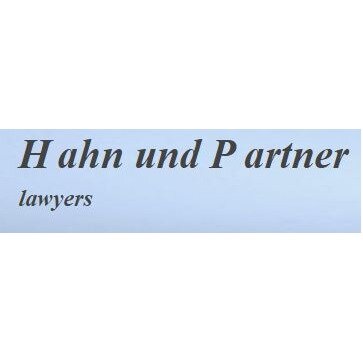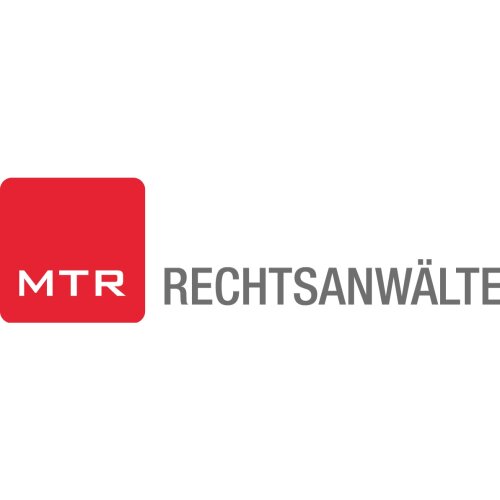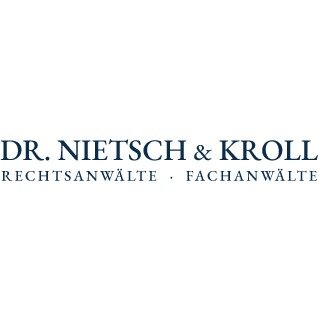Best Conveyancing Lawyers in Hamburg
Share your needs with us, get contacted by law firms.
Free. Takes 2 min.
Free Guide to Hiring a Real Estate Lawyer
List of the best lawyers in Hamburg, Germany
About Conveyancing Law in Hamburg, Germany
Conveyancing in Hamburg, Germany refers to the legal process of transferring ownership of real estate from one party to another. This involves a series of legal steps to ensure the property title is clear, the transaction is conducted in compliance with local regulations, and both the buyer and seller are protected. In Hamburg, conveyancing follows strict legal procedures governed by German property law, which requires the involvement of a notary to formalize the property transfer. Whether purchasing a home, commercial property, or land, understanding local conveyancing law is essential for a safe and successful transaction.
Why You May Need a Lawyer
There are several situations in which legal assistance is important during the conveyancing process in Hamburg:
- If you are buying or selling property for the first time and are unfamiliar with German law.
- If the property title or boundaries are unclear or disputed.
- If you do not speak German fluently and need help understanding documents and negotiations.
- If you want to ensure all contractual terms are fair and legally sound.
- If you need help reviewing or drafting purchase agreements.
- If there are existing mortgages or liens on the property that need to be resolved.
- If you are dealing with inheritance, divorce, or business-related property transactions.
Engaging a qualified lawyer can help you navigate complexities, avoid costly mistakes, and ensure the process complies with local laws and requirements.
Local Laws Overview
Property transfers in Hamburg are governed by the German Civil Code (Bürgerliches Gesetzbuch, BGB) and specific local regulations. Some key aspects include:
- All real estate contracts must be signed in the presence of a notary. The notary is responsible for ensuring the legality of the transaction and submitting necessary paperwork to the land registry (Grundbuch).
- The land registry is a public record that must be updated to reflect the new ownership. This registration is mandatory for the transfer to take legal effect.
- The buyer is generally responsible for paying property transfer tax (Grunderwerbsteuer), notary fees, and registration costs.
- Sellers must provide certain disclosures about the condition of the property and any encumbrances.
- Foreign buyers may face additional requirements or legal checks, particularly regarding anti-money laundering regulations.
- Hamburg may have specific zoning, heritage, or environmental regulations that can impact use or modifications to certain properties.
Frequently Asked Questions
What is the role of a notary in a property transaction?
In Hamburg, a notary is a neutral legal professional who ensures the property sale contract is legally valid. The notary drafts and certifies the agreement, explains its contents, and registers the transaction with the land registry.
Do I need a lawyer if a notary is already involved?
While the notary ensures the legal validity of the transaction, a lawyer can provide independent advice to protect your interests and review the contract in detail, especially if there are unusual circumstances or negotiations involved.
What costs should I expect when buying property in Hamburg?
Typical costs include property transfer tax (normally around 5 percent of the purchase price), notary fees, land registry fees, and possibly lawyer fees if you choose to be represented independently.
How long does the conveyancing process take in Hamburg?
From signing the contract to final land registry entry, the process usually takes between 6 to 12 weeks, depending on the complexity of the transaction and efficiency of the involved parties.
What documents do I need to buy property?
You will need government-issued identification, proof of financing or funds, and usually, a residence permit if you are a foreign buyer. Additional documents may be required for specific property types.
Can foreign nationals buy property in Hamburg?
Yes, foreign nationals are generally allowed to purchase property in Hamburg. However, additional checks, such as proof of funds and anti-money laundering documentation, might be required.
What is the Grundbuch?
The Grundbuch is the land registry in Germany. It contains records of property ownership, mortgages, rights of way, and other legal interests in real estate. Registration of change of ownership is mandatory.
Are there risks if I do not use a lawyer?
Possible risks include misunderstanding contract terms, legal liabilities, unresolved disputes, or unexpected costs. A lawyer can help identify and address these issues before finalizing the deal.
What if there are defects found after purchase?
German law generally holds buyers responsible for due diligence, but sellers are liable for knowingly concealed defects. Disputes can be complex, so legal advice may be needed to resolve such matters.
Can I negotiate the terms of the purchase agreement?
Yes, terms can be negotiated before the notary appointment. It is advisable to have a lawyer review or help negotiate the contract to ensure your interests are included and protected.
Additional Resources
For further information and assistance, consider the following resources:
- Hamburg Land Registry Office (Grundbuchamt Hamburg) - Handles property registration and information requests.
- Hamburg Bar Association (Hanseatische Rechtsanwaltskammer Hamburg) - Provides a directory of licensed lawyers specializing in property law.
- Federal Chamber of Notaries (Bundesnotarkammer) - Offers details about notary procedures and finding a local notary.
- German Real Estate Association (IVD) - Supplies information about real estate agents and market conditions.
- Consumer Protection Offices (Verbraucherzentrale Hamburg) - Offers advice on consumer rights and property transactions.
Next Steps
If you need legal assistance with conveyancing in Hamburg, consider the following steps:
- Consult with an independent lawyer experienced in German property law to discuss your specific situation and receive tailored advice.
- Gather all relevant documents and information about the property and your intended transaction.
- Contact a certified notary early in the process to ensure all legal requirements are understood and anticipated.
- Review any contracts or agreements in detail with your legal advisor before signing.
- Confirm all costs, taxes, and deadlines involved with your lawyer to avoid surprises during the process.
- Ask questions at every stage if you are unsure about legal terms or obligations.
Taking these steps can help you protect your interests and ensure a smooth property transaction in Hamburg.
Lawzana helps you find the best lawyers and law firms in Hamburg through a curated and pre-screened list of qualified legal professionals. Our platform offers rankings and detailed profiles of attorneys and law firms, allowing you to compare based on practice areas, including Conveyancing, experience, and client feedback.
Each profile includes a description of the firm's areas of practice, client reviews, team members and partners, year of establishment, spoken languages, office locations, contact information, social media presence, and any published articles or resources. Most firms on our platform speak English and are experienced in both local and international legal matters.
Get a quote from top-rated law firms in Hamburg, Germany — quickly, securely, and without unnecessary hassle.
Disclaimer:
The information provided on this page is for general informational purposes only and does not constitute legal advice. While we strive to ensure the accuracy and relevance of the content, legal information may change over time, and interpretations of the law can vary. You should always consult with a qualified legal professional for advice specific to your situation.
We disclaim all liability for actions taken or not taken based on the content of this page. If you believe any information is incorrect or outdated, please contact us, and we will review and update it where appropriate.














